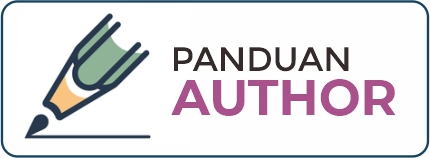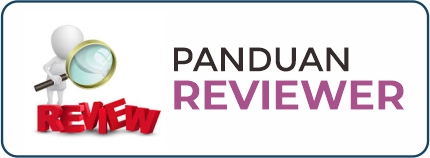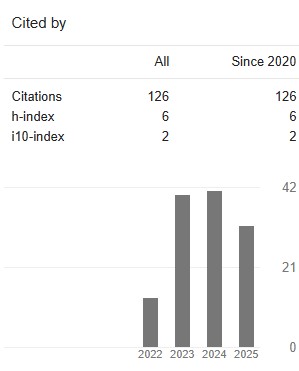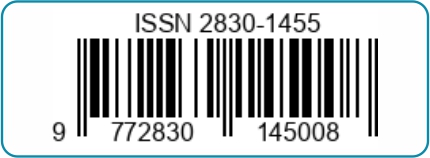Strategi Penguatan Industri Halal di Indonesia: Analisis SWOT
Strategy for Strengthening the Halal Industry in Indonesia: SWOT Analysis
DOI:
https://doi.org/10.36701/al-khiyar.v4i1.1432Keywords:
halal, industry, Indonesia, SWOTAbstract
This research aims to analyze the internal (strengths and weaknesses) and external (opportunities and threats) factors that influence the halal industry in Indonesia and formulate appropriate strengthening strategies based on the results of the SWOT analysis. This research uses a mixed approach, or a combination of qualitative and quantitative methods (mixed method), in the form of an exploratory sequential design using the SWOT analysis technique. The research results show that the strength of Indonesia's halal industry lies in the largest Muslim population in the world, a wealth of natural resources, a strong understanding of Islamic culture, and increased consumer awareness of halal products. However, the halal industry also has weaknesses, such as underdeveloped infrastructure, intense local competition, problems with product quality and authenticity, and difficulties in accessing global markets. From the external side, there are great opportunities to enter international markets, develop innovative halal products, establish strategic partnerships, and take advantage of local market growth. However, the halal industry is also faced with the risk of changing consumer trends, global competition, and product quality problems. Therefore, strengthening strategies are needed in several main areas: increasing productivity and competitiveness, implementing and strengthening policies and regulations, and strengthening finance and infrastructure. Apart from that, efforts are also needed to increase brand awareness of halal products and public awareness about halalness.
Downloads
References
Aslikhah, Aslikhah, and Alimatul Faridah. “Strategi Penguatan Halal Supply Chain Di Indonesia Dalam Menghadapi Global Islamic Economy.” Jurnal Istiqro 7, no. 1 (2021): 95–108.
Azwar, Azwar, and Jumadil Saputra. “The Role of the Digital Economy in the Development of the Halal Industry and the Sharia Economy in Indonesia: SWOT Analysis.” JURNAL INDO-ISLAMIKA 13, no. 1 (2023): 34–49.
Azwar, Azwar, and Fakhri Sungit. “The Role of Waqf on Halal Industry and Islamic Economic Development in Indonesia: A SWOT Analysis.” Tasharruf: Journal Economics and Business of Islam 8, no. 1 (2023): 1–24.
Center, Indonesia Halal Lifestyle. “Indonesia Halal Market Report 2021/2022.” Jakarta, 2021. https://isef.co.id/wp-content/uploads/2021/10/ReportIndonesiaHalal2021_2022.pdf.
David, Fred R. Manajemen Strategis: Konsep. 10th ed. Jakarta: Salemba Empat, 2006.
DinarStandard. “State of the Global Islamic Economy Report 2022,” 2022. https://cdn.salaamgateway.com/reports/pdf/State+of+the+Global+Islamic+Economy+Report+2022_V2_Updated.pdf.
Djamba, Yanyi K. “Social Research Methods: Qualitative and Quantitative Approaches.” Teaching Sociology 30, no. 3 (2002): 380. https://doi.org/http://dx.doi.org/10.2307/3211488.
Haryono, Haryono. “Strategi Pengembangan Industri Halal Di Indonesia Menjadi Top Player Global.” Ad-Deenar: Jurnal Ekonomi Dan Bisnis Islam 7, no. 02 (2023).
Hasyim, Hasnil. “Peluang Dan Tantangan Industri Halal Di Indonesia.” Ad-Deenar: Jurnal Ekonomi Dan Bisnis Islam 7, no. 02 (2023).
Ifediora, Osita, and Justina Nzekwe. “Organization’s Stability and Productivity: The Role of SWOT Analysis an Acronym for Strength, Weakness, Opportunities and Threat.” International Journal of Innovative and Applied Research 2 (October 1, 2014): 23–32. https://www.researchgate.net/publication/292747707_Organization’s_stability_and_productivity_the_role_of_SWOT_analysis_an_acronym_for_strength_weakness_opportunities_and_threat.
John, W Creswell. Research Design Pendekatan Kualitatif, Kuantitatif Dan Mixed. Yogyakarta: Pustaka Pelajar, 2013.
Komite Nasional Ekonomi Keuangan Syariah (KNEKS). “INSIGHT: UMKM Halal Dan Ketahanan Ekonomi Indonesia.” Jakarta: Komite Nasional Ekonomi Keuangan Syariah (KNEKS), 2021.
Muhamad, Muhamad. “Tantangan Dan Peluang Penerapan Kebijakan Mandatory Sertifikasi Halal (Studi Implementasi UU No. 33 Th. 2014 Dan PP No. 31 Th. 2019).” Jurnal Ilmu Ekonomi Dan Bisnis Islam 2, no. 2 (2020): 1–26. https://doi.org/https://doi.org/10.24239/jiebi.v2i2.29.1-26.
Nasution, Lokot Zein. “Penguatan Industri Halal Bagi Daya Saing Wilayah: Tantangan Dan Agenda Kebijakan.” Journal of Regional Economics Indonesia (JREI) 1, no. 2 (2020): 33–57.
Permata, My Sun, Arif Zunaidi, and Firnanda Hermadiani. “Resilien Ekonomi Umat: Tantangan Dan Prospek Industri Halal Pasca Krisis Pandemi Covid-19.” Proceedings of Islamic Economics, Business, and Philanthropy 2, no. 1 (2023): 352–65.
Pratiwi, Ni Putu Lusiana, and Made Sudiarta. “Alternative Marketing Strategies For Low Season Period At Courtyard By Marriott Bali Seminyak Resort.” Journal of Applied Sciences in Travel and Hospitality 2, no. 2 (2019): 109–19. https://doi.org/https://dx.doi.org/10.31940/jasth.v2i2.1424.
Pujiono, Arif, Ro’fah Setyawati, and I Idris. “Strategi Pengembangan Umkm Halal Di Jawa Tengah Dalam Menghadapi Persaingan Global.” Indonesia Journal of Halal 1, no. 1 (2018): 1–7.
Qoni’ah, Risa. “Tantangan Dan Strategi Peningkatan Ekspor Produk Halal Indonesia Di Pasar Global.” Halal Research Journal 2, no. 1 (2022).
Rangkuti, Freddy. Analisis SWOT Teknik Membedah Kasus Bisnis. Jakarta: Gramedia Pustaka Utama, 2015. https://books.google.co.id/books?hl=en&lr=&id=UHV8Z2SE57EC&oi=fnd&pg=PR9&dq=Analisis+SWOT+Teknik+Membedah+Kasus+Bisnis&ots=PvQMqYrFSC&sig=cipjPXXljBxv0fPPlxtrb2kua1A&redir_esc=y#v=onepage&q=Analisis SWOT Teknik Membedah Kasus Bisnis&f=false.
Saifuddin, Azwar. “Metode Penelitian.” Yogyakarta: Pustaka Pelajar, 2013. https://library.unismuh.ac.id/opac/detail-opac?id=104630.
Satriana, Eka Dewi, and Hayyun Durrotul Faridah. “Wisata Halal: Perkembangan, Peluang, Dan Tantangan.” Journal of Halal Product and Research (JHPR) 1, no. 02 (2018).
Sugiono. Metode Penelitian Pendidikan Pendekatan Kuantitatif, Kualitatif, Dan R&D. 25th ed. Bandung: Alfabeta, 2017. https://elibrary.bsi.ac.id/readbook/206060/metode-penelitian-kuantitatif-kualitatif-dan-r-d.html.
Warto, Warto, and Samsuri Samsuri. “Sertifikasi Halal Dan Implikasinya Bagi Bisnis Produk Halal Di Indonesia.” Al Maal: Journal of Islamic Economics and Banking 2, no. 1 (2020): 98–112.













